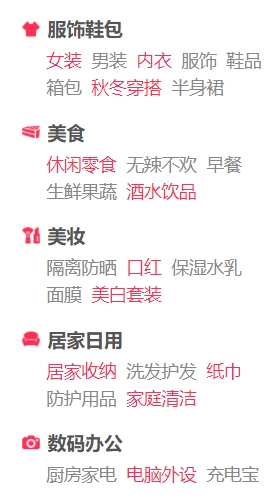
http://bbs.sdbeta.com/read-htm-tid-574411.html
vCenter Server: Simplified and Efficient Server Management. Gain centralized visibility, simplified and efficient management at scale, and extensibility across the hybrid cloud—all from a single console. VMware vCenter Server is advanced server management software that provides a centralized platform for controlling your VMware vSphere environments, allowing you to automate and deliver a virtual infrastructure across the hybrid cloud with confidence.
VMware vCenter Server Features
Simple Deployment
Quickly deploy vCenter Server as a pre-packaged, optimized, and easy-to-maintain virtual appliance. Integration of vSphere Update Manager into vCenter Server Appliance makes patching and upgrading fast and easy. RESTful APIs allow for the easily repeatable deployment of vCenter Server Appliance from a template, speeding up deployment times as well as reducing human error.
Extensibility and Scalability Across Hybrid Cloud
Seamlessly extend your on-premises environment to vSphere-based public clouds, such as VMware Cloud on AWS, no matter which version of vCenter Server you are running. Large-scale management is now improved: Manage up to 2,000 hosts and 35,000 virtual machines with a single vCenter Server instance.
Centralized Control and Visibility
Administer your entire vSphere infrastructure from a single location. The HTML 5-based vSphere Client lets you manage the essential functions of vSphere from any browser, offering more responsiveness and usability than ever before. Assign users to custom roles, search vCenter Server inventory, or provision new virtual machines with the click of a button.
Improved Management
Use powerful tools to simplify management and extend your control. Use web services APIs to achieve cost-effective and flexible integration with existing systems management products. And use different VMware vCenter Server versions while allowing cross-vCenter, mixed-version provisioning operations, such as vMotion, Full Clone, and cold migrate.
Proactive Optimization
Allocate and optimize resources for maximum efficiency with our server management software. Manage up to 70,000 virtual machines and 5,000 hosts across 15 vCenter Server instances. Use vSphere HA and DRS clusters to support up to 64 hosts and 8,000 virtual machines. Replicate roles, permissions, and licenses across the infrastructure so you can simultaneously log in, view, and search the inventories of all vCenter Servers. Link multiple vCenter Server Appliances and increase visibility without using costly load balancers.
Native Elements
Protect the vCenter Server Appliance and related services with native high availability (HA) and a recovery time objective of less than 10 minutes. vSphere provides native active-passive HA capability, certified for vCenter Server Appliance.
Back up your appliance to a set of files while vCenter Server is still up and running with native backup and restore. Restore by simply pointing a fresh appliance to the backup location and files will be downloaded to the new vCenter Server Appliance. No third-party products required.
Schedule your vCenter Server Appliance backups and control the number of backups retained via the native backup scheduler.
VMware vCenter Server 7.0.0a Release Notes - Date: May 19 2020
Resolved Issues This issue is resolved in this release.
vSAN Issues
- vSphere Lifecycle Manager and vSAN File Services cannot be simultaneously enabled on a vSAN cluster
- In vCenter Server 7.0 systems, if vSphere Lifecycle Manager is enabled on a vSAN cluster, vSAN File Services cannot be enabled on the same cluster and vice versa.
- With vCenter Server 7.0.0a, the vSAN File Services and vSphere Lifecycle Manager are interoperable. You can enable both services at the same time.
VMware vSphere with Kubernetes Release Notes - Date: May 19 2020
New Features
Tanzu Kubernetes Grid Service for vSphere: rolling upgrade and services upgrade
- Customers can now perform rolling upgrades over their worker nodes and control plane nodes for the Tanzu Kubernetes Grid Service for vSphere, and upgrade the pvCSI, Calico, and authsvc services. This includes pre-checks and upgrade compatibility for this matrix of services.
- Rolling upgrades can be used to vertically scale worker nodes, i.e. change the VM class of your worker nodes to a smaller or larger size.
Supervisor cluster: new versions of Kubernetes, upgrade supported
- The Supervisor cluster now supports Kubernetes 1.17.4
- The Supervisor cluster now supports upgrading from Kubernetes 1.16.x to 1.17.x
Resolved Issues
Naming conflict for deleted namespaces
- We have resolved an issue where if a user deleted a vSphere namespace, and then created a new vSphere namespace with the same name, we had a naming collision that resulted in being unable to create Tanzu Kubernetes Grid workload clusters.
Improved distribution names
- We have made it clearer what version of Kubernetes you are running by removing OVF versioning information to a separate column.
VMware vCenter Server is the centralized monitoring and resource management software for VMware vSphere virtual infrastructure.
VMware vCenter Server performs a number of tasks, including resource provisioning and allocation, performance monitoring, workflow automation and user privilege management. It enables a vSphere administrator to manage multiple ESX and ESXi servers and virtual machines (VMs) through a single console.
Many key vSphere features, including VMware Distributed Resource Scheduler (DRS), vSphere High Availability (HA), vSphere Fault Tolerance (FT) and VMware vMotion, require vCenter Server to function.
The vCenter Server architecture consists of three main components: vSphere Web Client, vCenter Server Database and vCenter Single Sign-On.
The vSphere Web Client is a web application that acts as the vCenter Server user interface. It enables the administrator to manage installation and handle inventory objects in a vSphere deployment and provides console access to VMs. VMware introduced a new HTML5-based vSphere Client in vSphere 6.5; the company said it would retire the Flash-based web client in the next numbered version of vSphere.
The vCenter Server Database stores and manages server data, from inventory items to resource pools. Every instance of vCenter Server requires its own unique database. Introduced in vSphere 5.1, vCenter Single Sign-On (SSO) is an authentication broker and security token that enables the user to use one login to access the entire vSphere infrastructure without further authentication.
Important vCenter Server features include the following:
Multi-hypervisor management. VMware vCenter Server offers integrated management for VMware and Microsoft Hyper-V hosts.
VMware Host Profiles. This tool automates ESX and ESXi host configuration. A vSphere administrator can use Host Profiles to create a standard configuration, which serves as a sort of blueprint for all other hosts, and automate compliance to this configuration across all hosts or clusters.
Automatic VM restart. VMware vCenter Server uses vSphere HA to pool VMs and their hosts into a cluster. In the event of a server failure, vSphere HA will automatically restart these VMs on other hosts within the cluster.
Patch management. The vSphere Update Manager(VUM) automatically scans and patches ESXi hosts and certain Microsoft and Linux VMs.
vRealize Orchestrator (vRO). This vCenter Server plug-in, which integrates with vRealize Suite and vCloud Suite, automates tasks using workflows.
vRealize Log Insight for vCenter Server. This log management software has customizable dashboards that enable an administrator to analyze system log data, identify and troubleshoot issues, and check for system compliance.
vCenter Server Linked Mode. This feature provides an administrator with a single view of their vSphere deployment. An administrator can also use Linked Mode to connect multiple vCenter Server systems and grant them permission to share information. Linked Mode automatically replicates all new resources created by the administrator, including roles, policies and permissions, across the linked vCenter Server systems.
Application programming interfaces (APIs). VMware vCenter Server uses APIs to communicate and integrate with third-party software.
Plug-in Extensibility
vSphere Client Plug-ins from VMware partners allow IT admins to manage third-party elements in their data center directly from vCenter Server. Our server management software has the largest partner ecosystem in the industry, with our open vSphere Client Plug-in SDK. As a result, vCenter Server customers can implement back-up, data protection, server management, network management and security management, directly from vCenter Server.
VMware launched the vSphere Client Plug-in Certification Program in 2016 to ensure a better end-user experience for customers. Certified Plug-ins deliver optimal performance, better security model, client isolation against failures in one plug-in, and enhanced vCenter Server Appliance scalability. Customers will be able to distinguish certified vSphere Client Plug-ins because only certified Plug-ins will carry the "VMware-ready" logo.
Certified vSphere Web Client plug-ins:
- Dell EMC OpenManagement Integration for VMware vCenter
- Huawei Technologies Storage NGC (Flex and HTML 5)
- IBM Storage Enhancements for vSphere
- IBM Spectrum Protect vSphere Web Client
- Infinidat Powertools (HTML 5)
- Lenovo XClarity Integrator for VMware vCenter
- NimbleStorage vSphere Web Client
- StorMagic
VMWARE.VCENTER.SERVER.V7.0-MAGNiTUDE
Home Page - https://www.vmware.com/
======================================================================
VMWARE vCenter Server Appliance 7.0
======================================================================
VMware-VCSA-all-x.y.z-adcdefg.iso (DVD 映像)。注意: 该软件包允许您安装、升级或还原 VMware vCenter Server Appliance,或者将适用于 Windows 的 vCenter Server 迁移到 vCenter Server Appliance。---------------------------
文件和目录
---------------------------
/vcsa vCenter Server Appliance 数据文件
/vcsa-ui-installer vCenter Server Appliance GUI 安装程序
/vcsa-cli-installer vCenter Server Appliance CLI 安装程序
/migration-assistant vCenter Server Migration Assistant
=================================
安装/升级/迁移/还原
=================================
此部分包含有关如何通过使用 GUI 安装程序或者通过使用 CLI 安装程序安装、升级或迁移以及如何使用 GUI 安装程序进行还原的基本信息。
可以通过使用以下安装程序,在运行 ESXi 6.5 或更高版本的主机上或者在 VCenter Server 6.5 或更高版本实例上部署 vCenter Server Appliance:
a) GUI 安装程序,或者
b) CLI 安装程序。在部署期间,两种方法均收集用户输入,运行验证,并部署 vCenter Server Appliance。-------------
GUI 安装程序
-------------
GUI 安装程序将系统地指导您在 Windows、Linux 或 Mac 上进行安装、升级、迁移或还原。*** Windows ***
打开 Windows 资源管理器,在 vCenter Server Appliance 安装目录中,导航到 vcsa-ui-installer\win32 文件夹。1) 双击 installer.exe 文件,或
2) 在命令行中,键入 installer。系统将会引导您完成部署过程。*** Mac ***
在 Mac 上,vcsa-deploy 文件位于 vcsa-ui-installer/mac 文件夹中。1) 按住 Ctrl 并单击 Installer 应用程序,或者右键单击它,然后从菜单中选择“打开”。如果看到关于“开发者身份不明”的警告弹出框,请单击“打开”或
2) 在终端中,键入 open Installer.app。*** Linux ***
在 Linux 上,vcsa-deploy 文件位于 vcsa-ui-installer/lin64 文件夹中。1) 双击 installer 文件,或
2) 在终端中,键入 ./installer。----------------------
CLI 安装程序
----------------------
可以运行 CLI 安装程序以便在 Windows、Linux 或 Mac 上进行安装、升级或迁移。*** Windows ***
打开 Windows 资源管理器,在 vCenter Server Appliance 安装目录中,导航到 vcsa-cli-installer\templates 文件夹。打开 vcsa-cli-installer\templates 目录。可以看到几个常见设置的示例文件。您可以创建新的 .json 文件或使用适合您需求的所有输入对现有模板进行自定义。有了要用于部署 vCenter Server Appliance 的模板文件后,在命令行终端中导航到 vcsa-cli-installer 内的 win32 文件夹,然后运行 vcsa-deploy {install|upgrade|migrate}
..\templates\{模板 json 文件的名称}.json。此命令将启动安装,您可以看到用户友好的状态消息,通知您相关进度并让您了解是否有任何操作失败。*** Mac/Linux ***
该过程与针对 Windows 的过程非常相似。使用模板文件执行操作,与在 Windows 上执行操作的方式相同。唯一的区别是 vcsa-deploy 文件位于不同的文件夹中:
在 Mac 上,vcsa-deploy 文件位于 vcsa-cli-installer/mac 中。在 Linux 上,vcsa-deploy 文件位于 vcsa-cli-installer/lin64 中。--------------------------------------------------
从 vCenter Server Windows 迁移到 Appliance
--------------------------------------------------
VMware Migration Assistant 有助于简化从在 Windows 上运行的
vCenter Server 到 vCenter Server Appliance 的迁移过程。
您可以使用 GUI 安装程序执行迁移,或使用 CLI 安装程序执行无人参与迁移。将 Migration Assistant 交付包,即整个目录 /migration-assistant,复制到 vCenter Server Windows 系统,然后双击可执行文件 VMware-Migration-Assistant.exe 并提供所需输入。----------------
详细信息
----------------
关于激活
推荐本站淘宝优惠价购买喜欢的宝贝:
本文链接:https://hqyman.cn/post/2354.html 非本站原创文章欢迎转载,原创文章需保留本站地址!
休息一下~~



 微信支付宝扫一扫,打赏作者吧~
微信支付宝扫一扫,打赏作者吧~
评论列表:
好好好好好好好好
肯定好
好,十分有用,工作上又可以轻松一些了
不错吧
感谢楼主分享,激活码
嗯嗯
好好好
当然
写的很好,容易懂
学到东西就好
写的很好,容易懂
感谢楼主分享激活码
谢谢楼主
感谢楼主分享
感谢楼主分享,有利于工作进步
辛苦楼主,码字不易,多谢
辛苦楼主,码字不易,多谢
不客气
谢谢楼主
不客气
谢谢楼主,希望有我关注的激活信息
你需要VC7的激活码?
感谢楼主分享激活码
你需要VC7的激活码?
感谢分享谢谢
不客气
不客气
谢谢学到很多东西,希望多分享一些经验
不客气